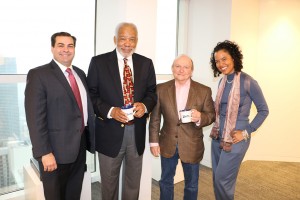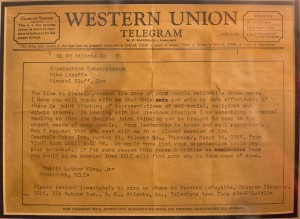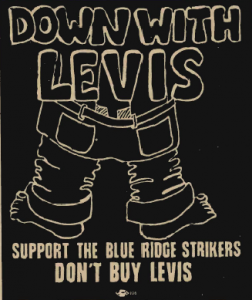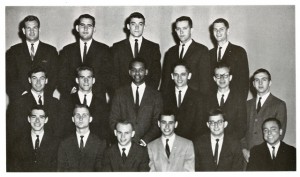
Michael Lozoff, a partner in the Miami office, remembers the day he felt a strong sense of injustice while in college. He had invited his black friend to eat lunch when his friend declined because they wouldn’t serve him or any person of color at the campus cafe. That event led Michael to spend much of his youth organizing communities and working in the civil rights movement.
Michael recounted this and other stories from his experience with the civil rights movement at a Martin Luther King, Jr. remembrance event hosted last Friday at the firm's Miami office. Miami Partner in Charge Frank Rodriguez said in his opening remarks that “this room would have looked very different in April of 1968. There’s a lot of diversity in this room and that’s in part attributed to Dr. King’s legacy.”
In spirit of that legacy, Michael shared about the work that drove him closer to Dr. King. Michael lived in the community and worked on a labor project involving poor white women in Appalachia until the time of Dr. King’s murder in April of 1968. Only a few weeks earlier, Michael received a telegram from Dr. King with respect to the project, calling on him to participate in a small assembly to discuss the plight of the poor:

Before finishing college, Michael began organizing migrant workers in the East Coast during the time Cesar Chavez organized on the West Coast. He documented conditions and helped people get medical and legal assistance. Later, he got involved with the Southern Student Organizing Committee in Atlanta during the time Dr. King was talking about how the movement was not about race or politics, but it was about poor people.
Michael and the SSOC heard about 400 female garment workers in Appalachia who had gone on strike after the union left them. They were living in poor conditions while the clothing factory took advantage of cheap labor.

After raising money for the strikers and months of no progress, Michael met with an organizer active in the civil rights struggle who was close with Dr. King. Michael then met with Dr. King who came up with the solution that his organization would come up with the funding for these women to build their own sewing factory, owned by them, with the understanding that they would form teams of women to travel around to black communities in the state and teach those women to create small co-ops so they could make a living. Randolph Blackwell, an attorney sent by Dr. King, and a well-known activist, helped close the deal. A large company provided the sewing machine and they hired 200 people. The co-op survived for 15 years.
For Michael, the 50s were a tumultuous era. While some believe that the era was a great time for America, Michael emphasized that no person of color would make that statement.
Sharing a different perspective that morning was Dr. Bruce W. Trotman, who was one of three black students out of 135 while in medical school at the University of Pennsylvania. During the civil rights movement, he was elected President of his majority-white class at Penn State, a member of several secret and honorary societies and led the effort in bringing Dr. King to speak to the Penn State student body. He remembered Dr. King as a man with “such a great presentation and [the] ability to draw you in.”

During his academic career, Dr. Trotman was one of the founders of the Association for Academic Minority Physicians, which sought to overcome the underrepresentation of minorities in biomedical sciences and the medical profession. Dr. Trotman’s approach toward equality has been to succeed despite the obstacles with the hope that his achievements would open doors for other minorities and his family.
Born in an underprivileged and largely African-American religious community in West Philadelphia, Dr. Trotman is the father of Greta E.M. Trotman, an associate in the Financial Services Practice Group. He is the Managing Partner of Digestive Disease Specialists of Manatee, PL and his over 30 years of experience as a professor, researcher, administrator, and clinician.
Related Articles:
- Kahn, Kathy, "Strikers' Coop Competes," The Movement, May 1968.
- Kahn, Kathy, "A Sweatshop Don't Ever Pay Enough," Mountain Life & Work, April 1973.
